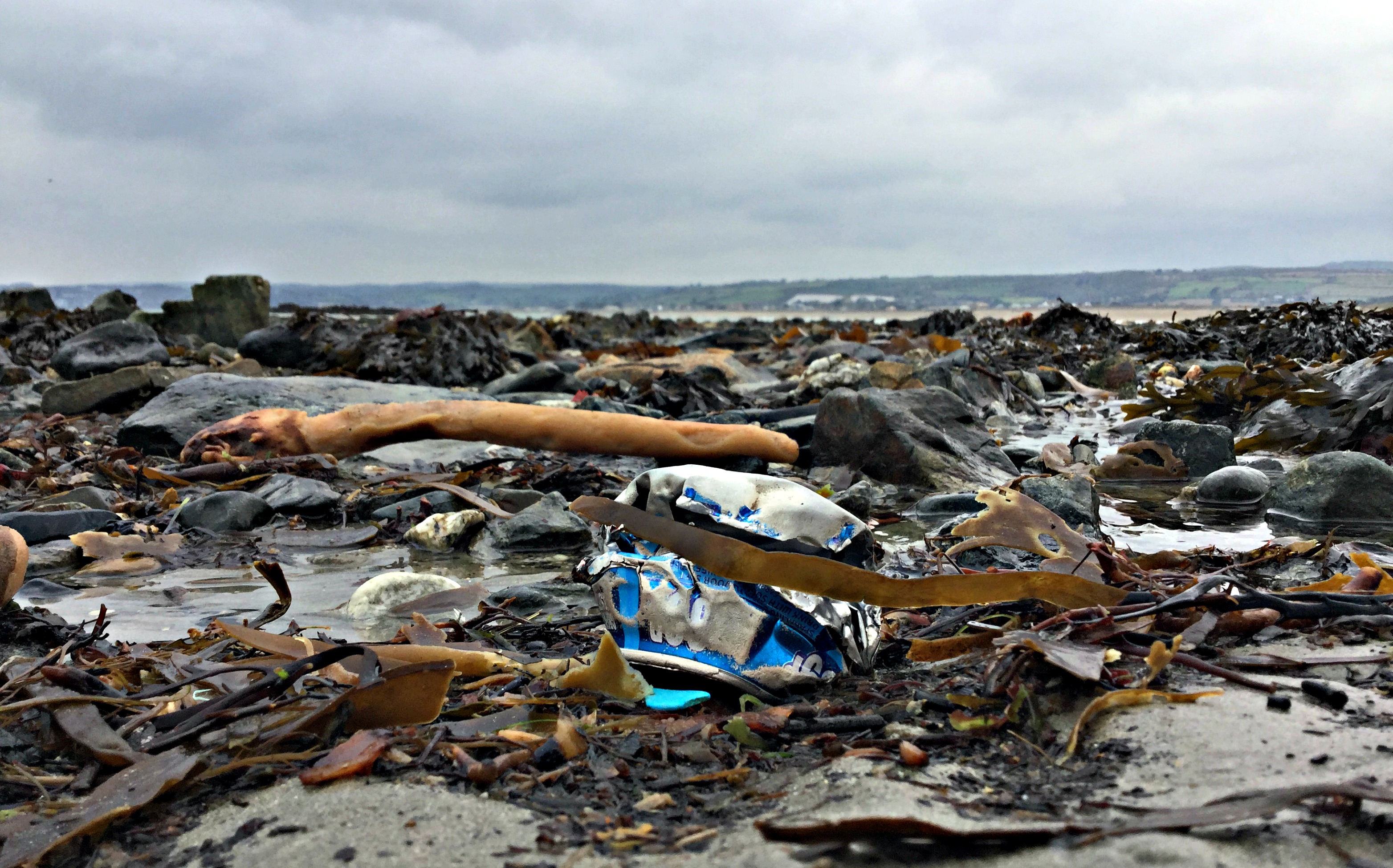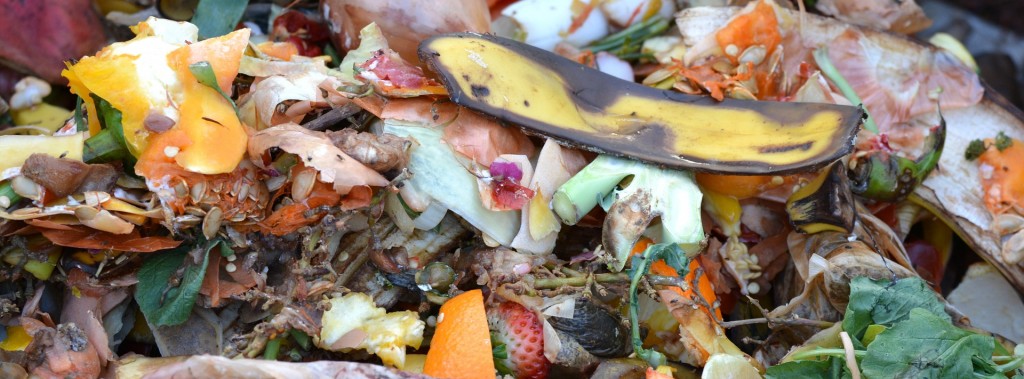News
Around 8 million items of litter enter the marine environment every day

I’m sure the headline of this article has caught your attention.
But marine litter doesn’t really make a difference to your or me does it? It’s just makes places look unpleasant.
It actually does affect us, in lots of different ways: it can poison the water, kill organisms, and even poison us.
Scottish fishing vessels have surveyed:
- 86% restricted catch due to marine litter
- 82% had catch contaminated
- 95% snagged gear on debris in water
Populations of commercial fish stocks are declining because of the bioaccumulation of litter-related toxins. For example, sewage goes into the ocean every day and contains bacteria and viruses, and then you have the nutrients entering from agricultural wash off leading to algal blooms and dead zones. Fifty years ago there were only 49 known ocean dead zones… now there is over 400 worldwide.
https://youtube.com/watch?v=a8ae2vq45eA
Marine litter is a global issue, but all is not lost. Some dead zones can be temporary and repaired, but we need to change our ways as a species now. If we work together we can really make a difference.
Every year there are new legislations being passed to limit the amount of litter entering our waters. But there is still so much left to be done and we can make a difference.
There is so much you can do!
- Talk to your children: Explain to them in simple terms the effects of their litter and the importance that they clean up after themselves. I’ve linked a helpful site with ways to discuss the situation with young children.
- Clean up after yourselves: When you are out make sure you clean up your own litter (if possible you could clean up some other litter too – only footprints should be left).
- Litter picks: Why not start a day out by joining a local litter pick? It doesn’t even have to be at a beach! When you attend a litter pick make sure you have the correct precautions such as gloves and sturdy shoes, and please keep an eye on any children taking part, because you never know what they could find
- In 2014 Surfers against Sewage (SAS) organised 335 beach clean-ups and received over nine thousand volunteers in the UK. Their goal is to have reduced litter on UK beaches by 50% by 2020, a goal which is easily reachable if we all work together and volunteer. There is an estimated 41,146,380 pieces of marine litter on the British coast line. Sounds like an impossible goal, huh? Actually, in 2014 SAS collected almost 60 tonnes of litter. To learn more about SAS litter picks and how you can organise your own please click on this link: SAS beach clean campaign
- Internationally there is www.oceanconservancy.org who are working to organise international litter picks each year. This year it will be held on September 17th 2016. The site has some great information about how to reduce your litter effect for individuals and even businesses so why not check them out and sign their litter pick pledge.
- Use less plastic: Plastic bags can take anywhere from 150 years to over a thousand before they degrade. Plastic bage are not biodegrade though; instead they are broken down by light into tiny fragments of plastic, which are toxic, and are known as microplastics. According to Greenpeace there are an estimated 1,000,000 birds, 100,000 turtles, and countless other sea organisms dying each year from ingesting plastic bags alone. The bags are mistaken for jellyfish and other forms of edible sea creatures. Then you have microplastics which can be formed from the breakdown of larger plastics, but are also placed in products – like the ones in face scrubs and toothpastes, for example. Due to the tiny size it’s bypassed by water treatment and is washed down to the rivers, streams, and eventually the ocean. To see what different products contain microplastics look at this link.
- Compost: Remember earlier I mentioned algal blooms? Well they can be caused by chemicals in the food we throw away or wash down or drains.
If you have the room and the time (it’s really simple) you could set up a compost heap, which not only reduces the amount of organic matter going into our oceans, but also can be used instead of artificial fertilizers.
Some easy steps for setting up a home compost:
- A home compost bin should be at least 1 metre cubed, with a lid to prevent rain entering.
- Ideally site your compost bin in a reasonably sunny site on bare soil.
- Bottomless bins are better as the allow earthworms to enter and speed up the process.
- Lots of food waste can be used to make compost, except meat/fish products, dairy products, grease/oil or bones.
- The smaller your scraps are cut the quicker then can decompose.
- You can compost peelings, egg shells, hair, small amounts of paper/softcard, plants, and tea/coffee particles.
- Keep filling it!
- Composting can take weeks or months depending on how much air and moisture are present.
- The compost is ready to use when it is crumbly in appearance and has a slightly earthy smell.
- Spread away!
This isn’t an extensive list of how you can reduce the amount of litter going into the ocean: it’s only the tip of the iceberg, but it’s a start.
Article sources:
Marine Litter – An Analytical Overview – UNEP 2005
http://www.sas.org.uk/wp-content/uploads/SAS-Marine-Litter-Report-Med.pdf
Gear News
Introducing the TR-80, IR-50 and CS-30 Regulators from DYNAMICNORD

Whether you are a beginner or a professional diver – with the three new main regulators from DYNAMICNORD, everyone will find their favourite regulator. They all look super stylish.
Excellent performance with the TR-80
Quality and performance are the be-all and end-all for regulators. It is not for nothing that the TR stands for Tec Reg. The innovative design of the TR-80 guarantees absolute reliability – even in ice-cold waters.

Perfect breathing effort at 0.8 J/l / certified for diving in waters below 10 degrees / structural design made of solid brass for best cold protection / membrane-compensated design with dry seal of the first stage / reduced exhalation effort thanks to optimized exhalation membrane and bubble deflector / adjustable Venturi (dive/predive) and adjustment knob for individual inhalation comfort / innovative design of the front cover prevents free-flow in strong currents or when diving with scooters / design made of sandblasted brass, matt chrome finish / 2 HP and 4 LP outlets / mouthpiece made of high-quality, anti-allergic silicone for maximum comfort.


Amazing underwater adventures with the IR-50
The IR-50 is the top regulator for advanced and experienced divers. Natural breathing is the essence of this regulator.

Ideal breathing effort at 0.8 J/l /certified for diving in waters below 10 degrees / compensated membrane / adjustable venturi (dive/predive) and adjustment knob for individual inhalation comfort/ outlet valve and deflector for minimum exhalation effort and reduction of bubbles on the face / design made of sandblasted brass, matt chrome finish / 2 HP and 4 NP outlets / mouthpiece made of high-quality, anti-allergic silicone for maximum comfort.


The Workhorse – our CS-30
For diving centres and diving beginners – the workhorse stands for strong construction, reliability and robustness. Perfect for your training.

Optimal breathing effort at 0.8 J/l /recommended for diving in waters above 10 degrees / non-compensated piston / adjustable venturi (dive/predive) / outlet valve and deflector for minimum exhalation effort and reduction of bubbles on the face / design made of sandblasted brass, matt chrome finish / 1 HP and 3 NP outlets / mouthpiece made of high-quality, anti-allergic silicone for maximum comfort.


Octopus OP-30
The OP-30 is the ideal addition to all DYNAMICNORD regulators. It is identical in construction to the CS-30.

The TR-80, IR-50, CS-30 (DIN & INT) regulators and the Octopus OP-30 are available from DYNAMICNORD dealers and in the online store.
DYNAMICNORD – Your Outdoor Companion.
Marine Life & Conservation
Paul Watson Released as Denmark Blocks Japan’s Extradition Bid

Renowned anti-whaling activist Paul Watson has been released from custody in Greenland after spending five months in detention. Denmark’s Justice Ministry rejected Japan’s request for his extradition, citing insufficient guarantees that his time already served in custody would be credited against any potential sentence.
The 74-year-old Canadian-American was arrested on July 21 in Nuuk, Greenland’s capital, when his ship docked to refuel. His arrest was based on a 2012 Japanese warrant related to a 2010 encounter in Antarctic waters. Japan alleged Watson obstructed operations and caused damage to a whaling research ship during efforts to disrupt illegal whaling. Watson has consistently denied these claims, maintaining his commitment to marine conservation.
Denmark, which oversees extradition matters for Greenland, concluded that while the legal conditions for extradition were met, the lack of assurances from Japan regarding time-served credit made extradition untenable.
In a video shared by his foundation, Watson expressed gratitude and relief, saying, “After five months, it’s good to be out… and good to know they’re not sending me to Japan.” He added that the most difficult part of his time in custody was being separated from his two young sons.
Watson is a pioneering figure in marine conservation, known for founding the Captain Paul Watson Foundation in 2022 after decades of activism with the Sea Shepherd Conservation Society. His bold efforts to defend marine life have earned him widespread support, including from celebrities and conservationists. His work has also been featured in the acclaimed reality TV series Whale Wars.
Watson’s lawyer, Jonas Christoffersen, praised the decision, stating, “We are happy and relieved that Paul Watson is now free.” He added that Watson is eager to reunite with his family and continue his vital work.
The arrest occurred while Watson’s vessel, the M/Y John Paul DeJoria, was en route to the North Pacific with a team of 26 volunteers to intercept a Japanese whaling ship. His foundation described the arrest as politically motivated and emphasized that Watson’s actions were focused on ending illegal whaling practices.
Japan resumed commercial whaling in 2019 after leaving the International Whaling Commission, asserting that whale meat is a cultural tradition. Conservationists, however, continue to challenge these practices, highlighting their impact on marine ecosystems.
Despite the challenges, Watson remains steadfast in his mission to protect marine life and bring attention to whaling practices. His dedication to ocean conservation has made him a globally respected advocate for the environment.
-

 News2 months ago
News2 months agoIconic SS United States to become the World’s Largest Artificial Reef
-

 News3 months ago
News3 months agoBook Review – 52 Assignments: Underwater Photography
-

 Gear News3 months ago
Gear News3 months agoDYNAMICNORD – New German diving brand enters the British market
-

 News3 months ago
News3 months agoExploring Cenote El Pit: A Diver’s Dream
-

 Gear News3 months ago
Gear News3 months agoTry BARE drysuits (and maybe even win one!) this Friday with Sea & Sea at North West Dive Fest
-

 Marine Life & Conservation3 months ago
Marine Life & Conservation3 months agoBook Review: Coral Triangle Cameos
-

 Blogs2 months ago
Blogs2 months agoDive the Egyptian Red Sea this Autumn with Regaldive
-

 News3 months ago
News3 months ago2024 Ocean Art Underwater Photo Competition Announced
















